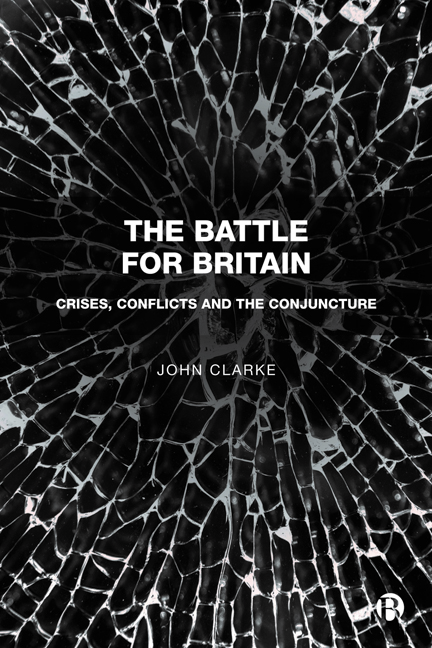9 - Unstable Equilibria: The Life of the State
Published online by Cambridge University Press: 18 January 2024
Summary
In this chapter, I explore a different focus of the turbulence and troubles of this conjuncture – the state. Many of the crises discussed earlier in the book have been threaded through the apparatuses and agencies of the state, not least as a result of the ways that the UK state has been – and continues to be – occupied and remade by the dominant bloc. From the policing of dissent and disorder to the management of migration; from pandemic governance to the regulation of public utilities; from the cost of living to the environmental crisis, the array of emerging crises and dominant efforts to manage them are intimately interwoven with the state. If, as Gramsci suggested, the ‘life of the state can be conceived as a series of unstable equilibria’, then this is a profoundly unsettled moment in the life of the UK state. These crises have different trajectories and temporalities (as I argued in Chapter 2). They have also involved different social forces and mobilisations. But they have consistently coalesced in and around the state, such that we might talk of a crisis of the state itself.
I will suggest that the current crisis of the British state has three distinctive, although interconnected, aspects. First, there is a crisis of capacity involving the state's ability to manage social, political, environmental and economic disorders. Second, there is a crisis of legitimacy that condenses varieties of anti-state scepticism alongside a deepening popular mistrust of politics, politicians or what is sometimes called ‘the political class’. Third, this crisis of legitimacy is linked to a crisis of authority, in which the dominant bloc has found it harder to command popular support for its projects, policies and promises. As a result, I suggest, the state is ‘not what it used to be’ and needs to be considered in more carefully conjunctural terms (rather than assuming that there is a persistent and coherent entity called the state or even The State). In this chapter I consider each in turn, and end by asking what it means to ‘perform like a state’.
- Type
- Chapter
- Information
- The Battle for BritainCrises, Conflicts and the Conjuncture, pp. 164 - 177Publisher: Bristol University PressPrint publication year: 2023

